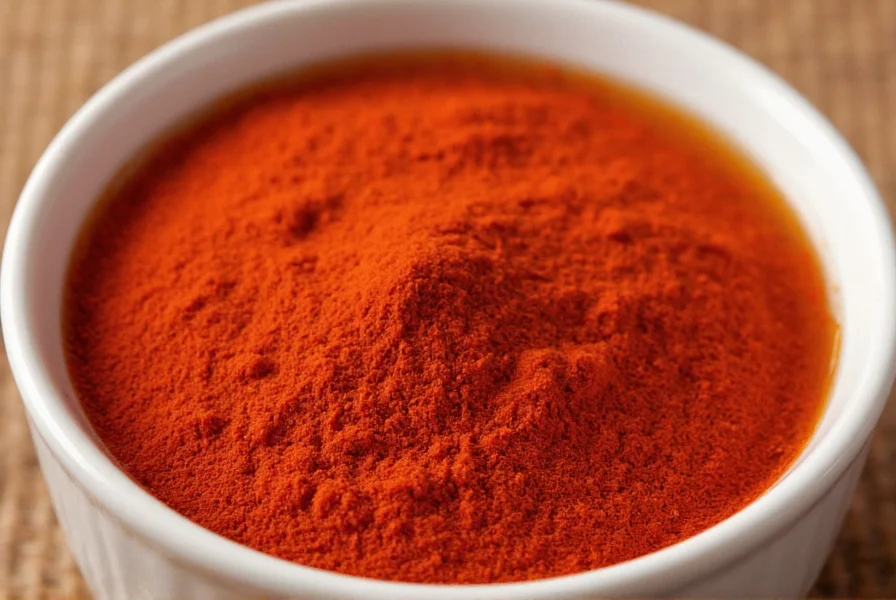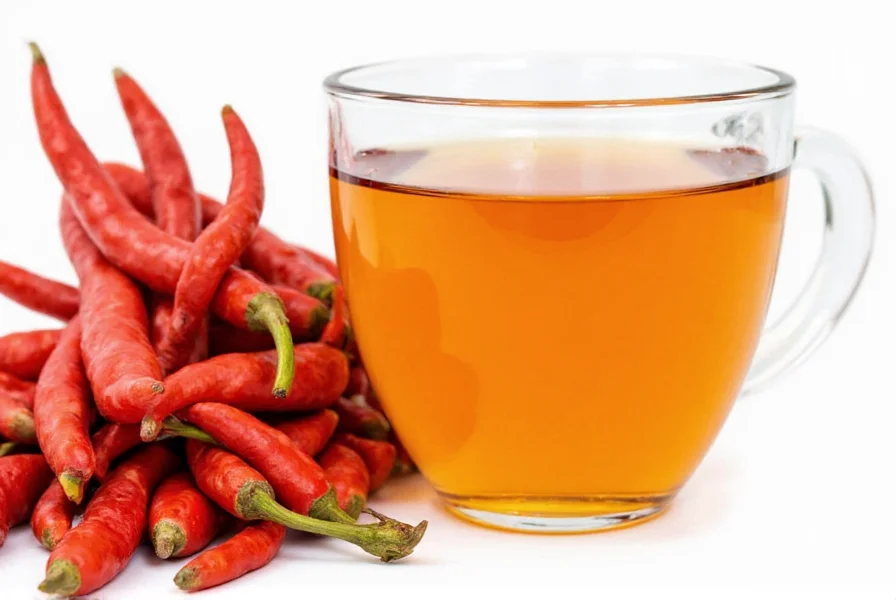Cayenne pepper tea has gained popularity in wellness circles for its distinctive heat and potential health properties. This vibrant red infusion contains capsaicin, the compound responsible for the pepper's spiciness, which interacts with receptors in the body to produce various physiological effects. Understanding both the science-backed benefits and realistic limitations is essential for anyone considering adding this tea to their routine.
What Is Cayenne Pepper Tea?
Cayenne pepper tea is prepared by steeping dried cayenne peppers or cayenne powder in hot water. Unlike traditional teas that come from the Camellia sinensis plant, cayenne tea qualifies as a herbal tisane. The heat level varies depending on the cayenne variety and preparation method, with Scoville Heat Units typically ranging from 30,000 to 50,000.

Nutritional Profile of Cayenne Pepper
Per teaspoon (2g) of cayenne powder:
| Nutrient | Amount | Daily Value % |
|---|---|---|
| Calories | 6 | <1% |
| Vitamin A | 44% DV | Excellent source |
| Vitamin C | 7% DV | Good source |
| Vitamin B6 | 5% DV | Moderate source |
| Manganese | 3% DV | Minor source |
| Capsaicin | 0.1-1.0% | Active compound |
Science-Backed Health Benefits
Research on cayenne pepper tea benefits reveals several evidence-supported effects, though many studies use capsaicin supplements rather than tea specifically.
Metabolic Effects
Multiple studies indicate capsaicin may temporarily increase metabolic rate. A 2017 review in Chemical Senses found that capsaicin consumption could increase energy expenditure by approximately 50 calories per day. While this effect is modest, regular consumption of cayenne pepper tea for weight loss might contribute to long-term metabolic support when combined with other healthy habits.
Digestive Support
Research published in World Journal of Gastroenterology suggests capsaicin may stimulate digestive enzyme production and improve gut motility. Many people report that a small cup of cayenne pepper tea before meals helps with digestion, though individual responses vary significantly.
Pain Relief Properties
The same capsaicin that creates heat in cayenne peppers may help reduce pain perception. When consumed regularly in moderate amounts, cayenne pepper tea benefits for inflammation may include temporary relief from minor aches. This effect works through the depletion of substance P, a neurotransmitter involved in pain signaling.
How to Make Cayenne Pepper Tea
Preparing cayenne pepper tea requires careful measurement to balance benefits with palatability. Here's a standard preparation method:
- Boil 8-12 ounces of filtered water
- Add 1/8 to 1/4 teaspoon of organic cayenne powder (start with less if new to spicy foods)
- Optional: Add lemon juice, honey, or ginger to moderate heat
- Steep for 5-7 minutes
- Strain if using whole pepper pieces
- Consume in the morning or before meals for potential metabolism benefits

Safety Considerations and Side Effects
While generally safe for most adults, cayenne pepper tea side effects can include:
- Temporary burning sensation in mouth and throat
- Heartburn or acid reflux in sensitive individuals
- Stomach irritation when consumed in excess
- Temporary increase in blood pressure during initial consumption
- Potential interactions with blood thinners
Those with gastrointestinal conditions like ulcers, IBS, or GERD should consult a healthcare provider before regular consumption. Pregnant women and individuals taking medications for hypertension or blood clotting should exercise caution with cayenne pepper tea consumption.
Realistic Expectations for Cayenne Tea Benefits
Despite popular claims, cayenne pepper tea is not a miracle cure. Research shows modest effects that work best as part of a comprehensive wellness approach. The question of does cayenne pepper tea help with digestion has some scientific support, but effects vary by individual. Similarly, while cayenne pepper tea and metabolism may have a connection, the impact is relatively small compared to diet and exercise.
Most health professionals recommend viewing cayenne tea as a complementary wellness practice rather than a primary treatment for medical conditions. The anti-inflammatory properties of cayenne pepper tea may provide supportive benefits, but shouldn't replace conventional medical care for inflammatory conditions.
Comparing Cayenne Tea to Other Herbal Options
Cayenne pepper tea offers unique properties compared to other popular herbal teas:
- Ginger tea: Both support digestion, but ginger is generally better tolerated and has stronger evidence for nausea relief
- Green tea: Contains caffeine and different antioxidants; better studied for long-term metabolic benefits
- Peppermint tea: Soothes digestion without heat; better for immediate relief of stomach discomfort
- Turmeric tea: Contains curcumin for inflammation; less immediate physiological effect than cayenne
Many wellness practitioners recommend rotating between different herbal teas to gain diverse benefits while preventing overexposure to any single compound.
Practical Recommendations
For those interested in trying cayenne pepper tea, these evidence-based guidelines can help maximize benefits while minimizing discomfort:
- Start with small amounts (1/8 teaspoon) and gradually increase as tolerance develops
- Consume with food or after meals if experiencing stomach sensitivity
- Drink in the morning for potential metabolism support throughout the day
- Combine with lemon for vitamin C enhancement and honey to moderate heat
- Limit to 1-2 cups daily to avoid potential side effects
- Discontinue use if experiencing persistent discomfort
Conclusion
Cayenne pepper tea offers interesting potential health benefits supported by emerging research, particularly regarding metabolism and digestion. While it shouldn't be viewed as a cure-all, moderate consumption can be a valuable component of a holistic wellness routine for many people. As with any dietary change, individual responses vary, so pay attention to your body's signals and consult healthcare professionals when needed.











 浙公网安备
33010002000092号
浙公网安备
33010002000092号 浙B2-20120091-4
浙B2-20120091-4